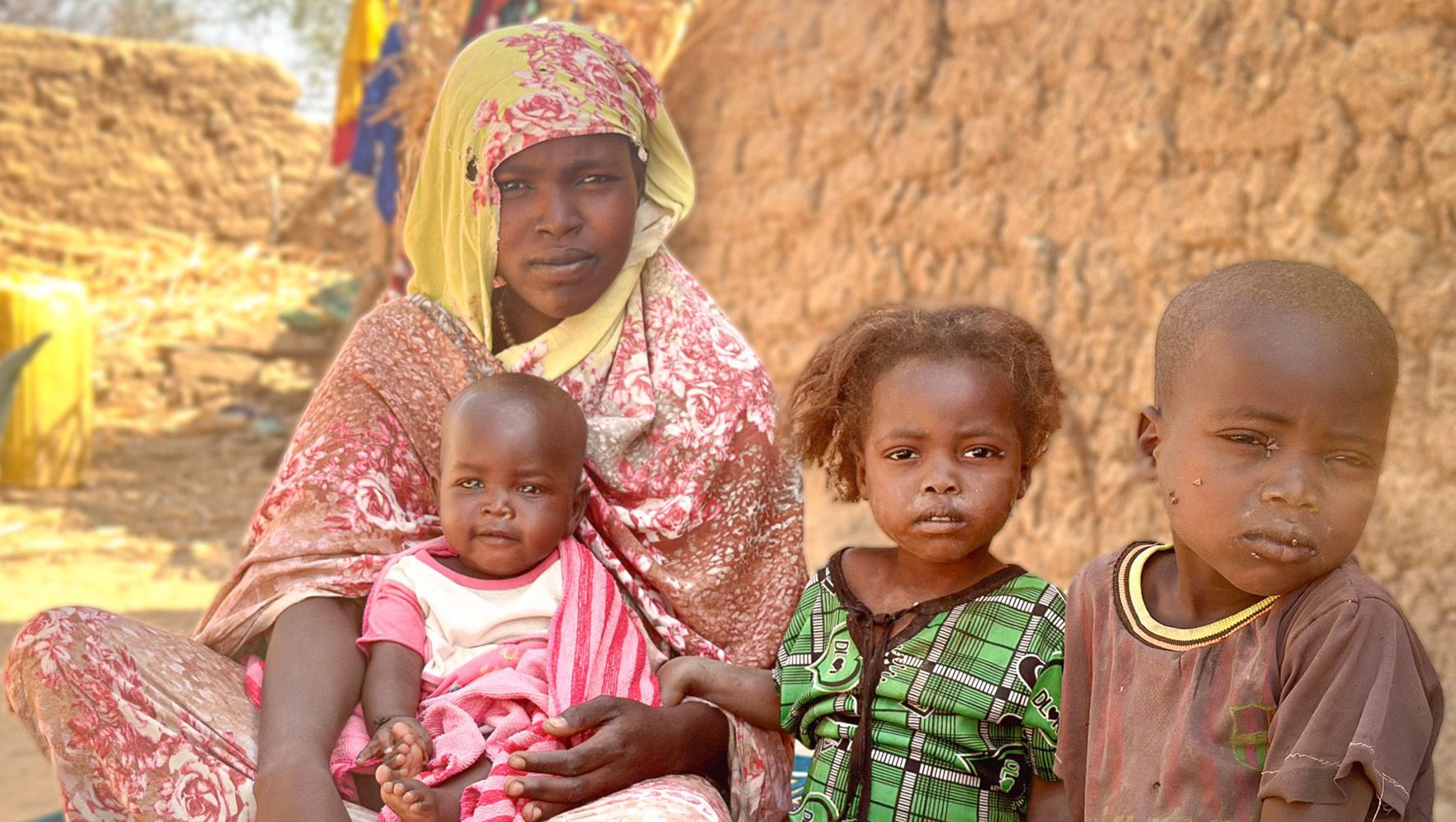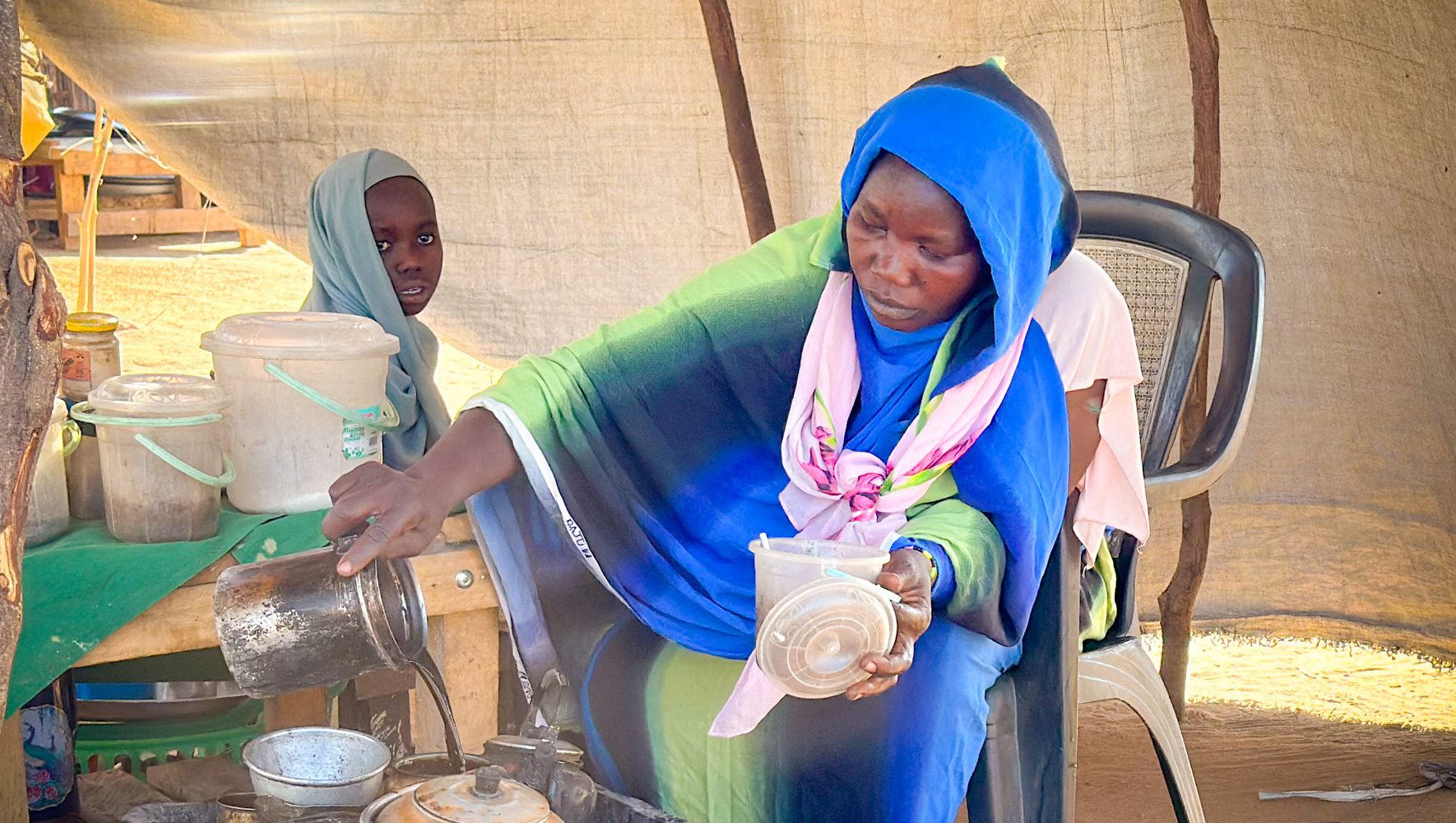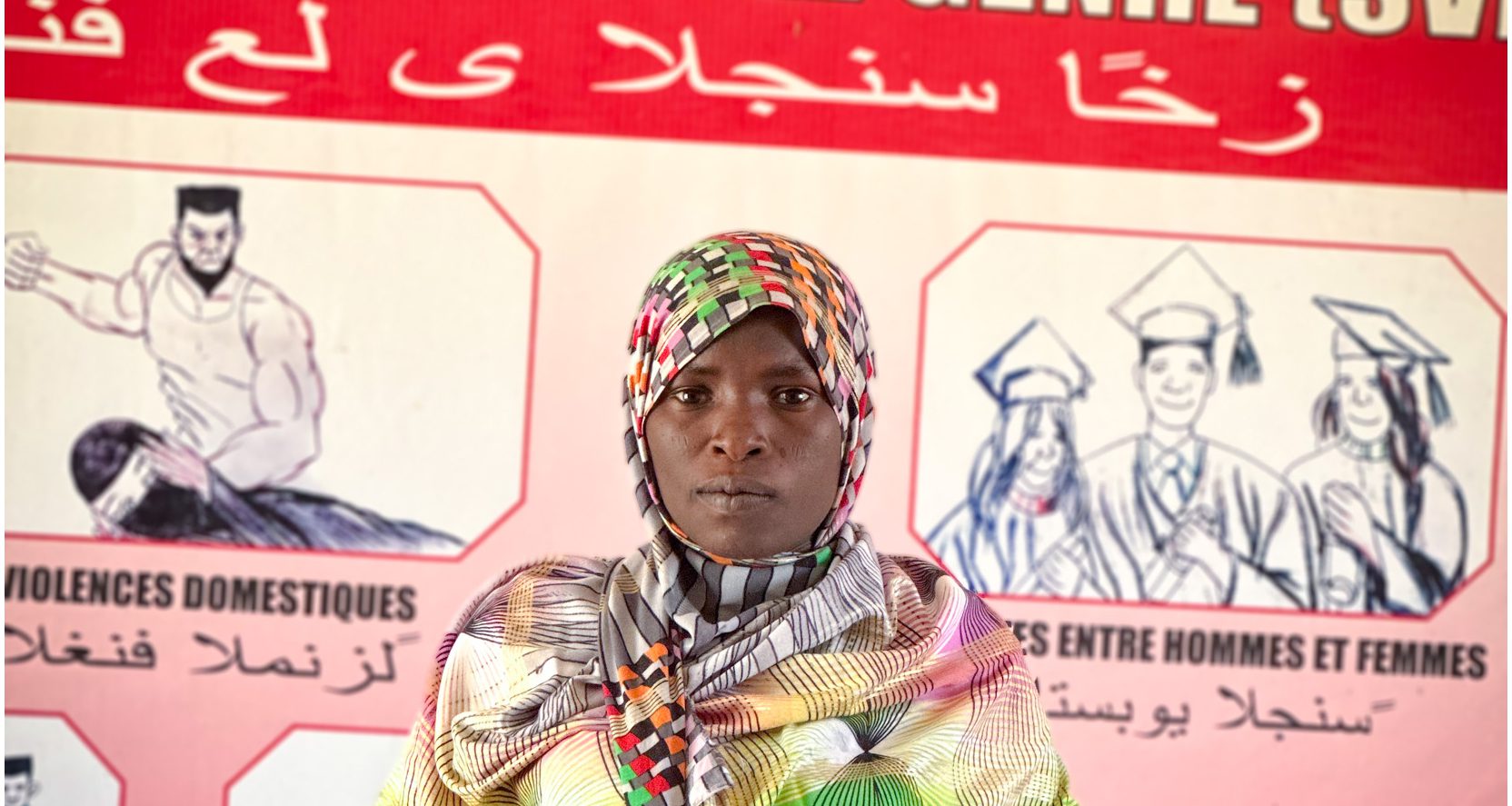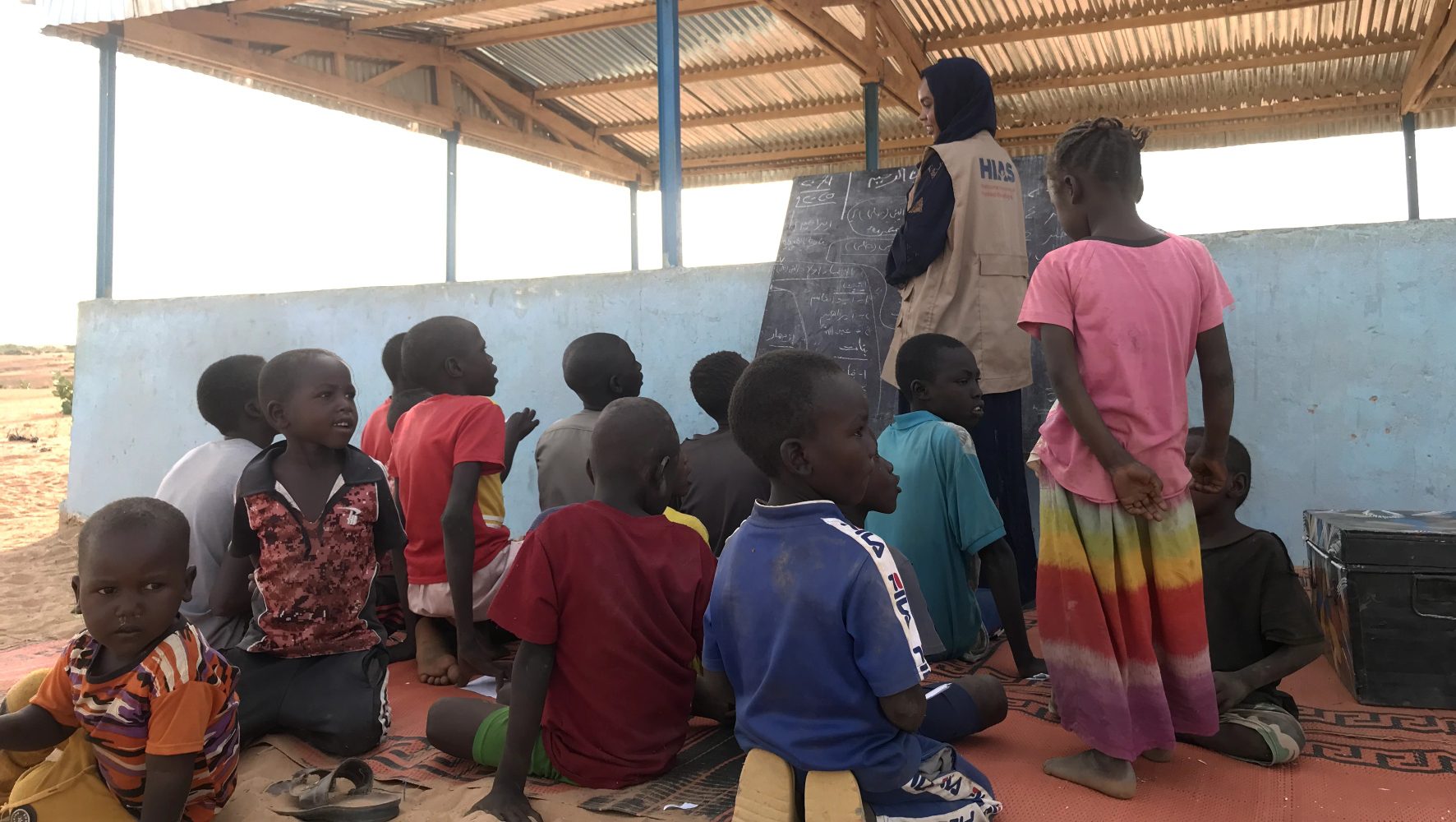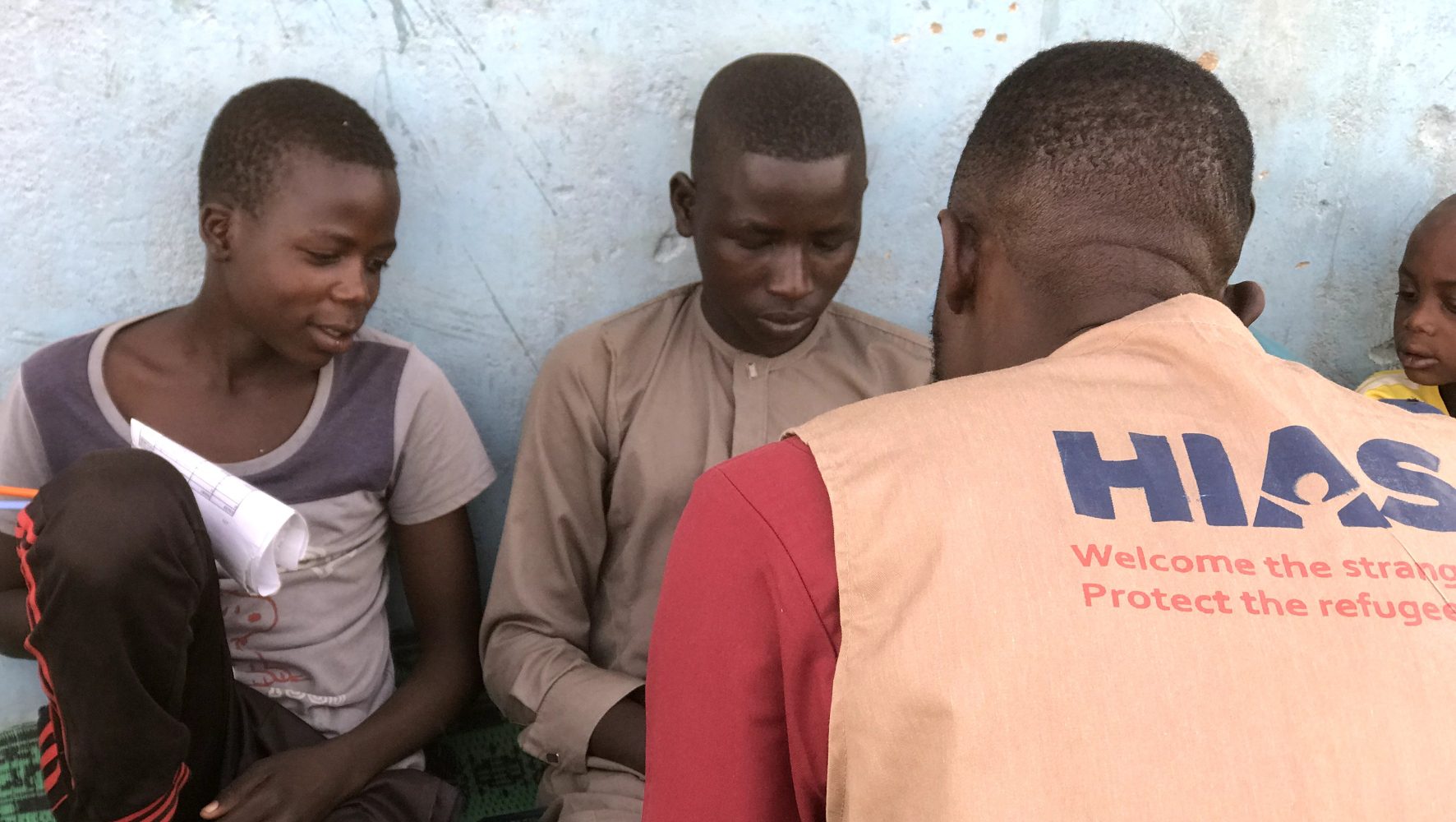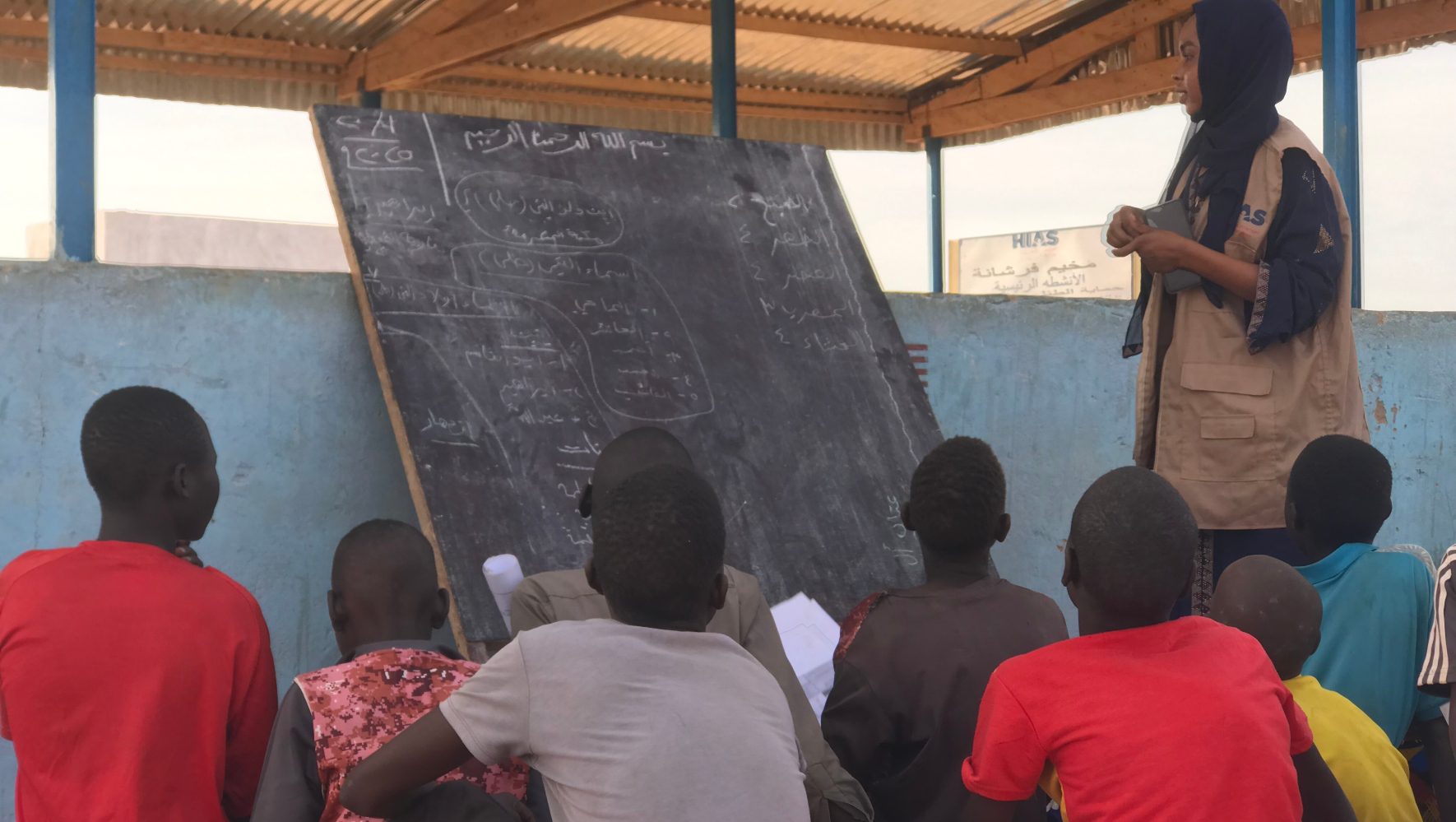Last April, fighting broke out in Sudan’s capital of Khartoum and soon spread across much of the country, forcing millions of Sudanese people displaced by the conflict to flee to neighboring countries. More than 554,000 of these newly arrived Sudanese refugees settled in Chad, one of the world’s poorest countries, and already home to 400,000 displaced from Sudan during earlier crises. These refugees joined approximately 180,000 refugees from other neighboring countries, more than half of whom are children, as well as 215,000 internally displaced Chadians. This population has stretched Chad’s already limited resources. Certain areas of the country face significant humanitarian issues due to a complex nexus of contributing factors, including poverty, insurgent violence, and climate change.
HIAS has provided protection and services to refugees, displaced persons, and host communities in Chad for nearly 20 years, and runs field offices serving 13 refugee camps along the eastern border with Sudan. On a trip to these camps in eastern Chad, HIAS Chad Communications Coordinator Denis Djikini Kemndah met a number of recent arrivals from Sudan who told him about their flight to safety.
Here are their stories:
Aché Juma Yaya
Aché Juma Yaya, 27, witnessed horrible clashes that ravaged her native village of Tabarik, Sudan, last year. She began a difficult journey with her mother to the Gaga camp in Chad. Days turned into weeks.
“It was extremely exhausting,” she said. Arriving at the camp with their donkeys, they were welcomed by humanitarian teams who provided them with emergency kits. Aché was relieved — but within the camp she faced new challenges. “I suffered discrimination when I arrived in Chad,” she said. “Some men showed me less respect simply because I was a woman.” Aché drew strength from faith and determination. “May Allah be with them,” she said of other refugees. “Along the way, a lot happens. But we have to put our lives above the material.”
Djimié Abakar Yacoub
Djimié Abakar Yacoub is 51 years old and the mother of three children. She currently lives in Arkoum camp. Prior to fleeing, Djimié lived in Maragibir, a village located not far from the town of El-Djinena in Sudan. She described life with her husband and children as “reasonable and peaceful.” But after conflict broke out in Sudan last April, Djimié’s husband decided that they should travel to Chad to find shelter and wait to return home when things calmed down.
The journey was harrowing. They first traveled on the back of a donkey before paying for a car to take them to the Chadian border. It was during this movement that her husband died — and the family couldn’t even bury him. She continued the rest of the trip with just her children. After three days, they were able to cross the Chadian border and reach a camp in Adré, and later, one in Arkoum. Life was difficult at first. But soon, they found shelter and were included in the UNHCR register. Gradually, they joined camp activities.
This is how they encountered HIAS, which had launched a program to assist refugee women in carrying out income-generating activities. Djimié was one of 10 women to benefit from cash assistance equivalent to approximately $125 per person, a sum that allowed her to launch a small business. Today, she sells tea, coffee, and donuts in the small camp market. She is truly grateful for HIAS for its life-saving support.
Allahwiya Attahir
Allahwiya Attahir was just 20 years old and a mother of three when she fled Al Geneina, Sudan, last year. “It was terrifying,” she said. En route to the Gaga camp, the family was exhausted, sad, and anxious. When they arrived, they were confronted with gender-related discrimination.
But there was some reason for hope. HIAS was among the first to reach out to Allahwiya, providing her family with quick installation kits that brought a semblance of normalcy to their chaotic lives. Despite her struggles, Allahwiya refuses to let despair overwhelm her. “I learned to be careful and prepare,” she said. “My experience has taught me that resilience is our greatest weapon against adversity.”
